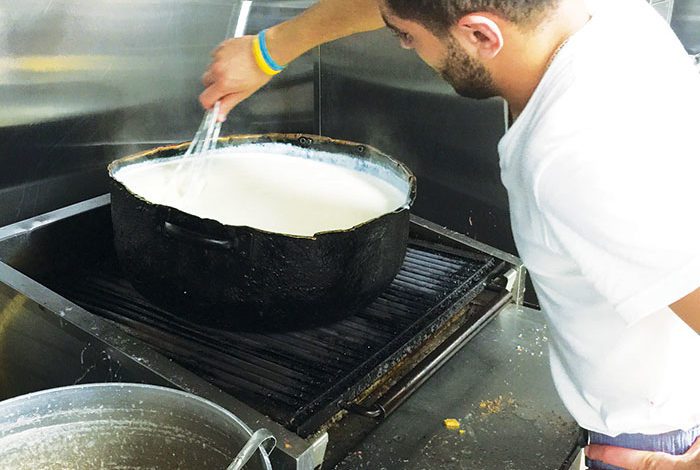
Physical work without food or water and can pose severe health risks. However, despite the hardships, some Muslim workers opt to endure the difficulty of fasting. To them, giving up on observing the holy month is not an option.
Landscape worker Mohamad Alabadi, who is known as Abu Ali, said the difficulty of fasting while working outdoors all day during Ramadan disciplines laborers and improves their work ethics.
“Fasting teaches us to control our desires,” he said. “It strengthens our willpower. The heat and long hours are draining. We face those challenges during Ramadan and that helps us face other challenges throughout the year.”
Abu Ali works 10 to 12 hours and does not adjust his work schedule during the holy month.
“I don’t think of Ramadan as an obstacle to my work,” he said. “I do it for God, not the money. I look up to the Prophet Mohamad and his family and companions. They worked and our conditions might be better. We have cars and air conditioning. Ramadan gives us power and strengthens our relationship with the divine.”
Mohamad, a baker at Masri Sweets, works facing the oven every day. He said he drinks a lot of water and eats watermelon and soup at iftar and suhoor to make up for dehydration from fasting.
“The heat from the oven makes it difficult,” he said. “Thank God I have managed to stay fasting. At the end of the day, it gets really tough, but if you fast for more than 12 hours, you might as well endure a few more hours until iftar.”
Mohamad said he avoids checking the time and keeps busy to distract himself and refrain from focusing on his thirst and hunger, especially during the hours preceding iftar.
“Sometimes I feel like I’m melting from the heat,” he added. “I get tired. But I always remind myself that I can do it. I am not going to break my fast.”
Hussein Ammar, who works at a moving company, said he fasts within his capacity, given the physical nature of his job.
“Sometimes, it’s a tough day and we have to break our fast,” he said. “We fast until we cannot. If we cannot take it anymore and we need food and water to continue our job, we stop fasting. God is merciful and forgiving. God tells us to do everything to the best of our ability.”
Abdulamir Almayahi, who owns a moving company, said he and his employees fast throughout Ramadan, despite the conditions.
“We are fasting and working,” he said. “We have to work. We cannot choose when to work. When the customer calls, we have to answer, whether we are fasting or not.”
Almayahi added that when the days get tough he is tempted to break his fast, but he ends up holding on “for the reward from God.
“We thank God for giving us the strength.”
Imam Taleb Al-Sanjari said workers should fast to the best of their ability during Ramadan.
“They should wake up fasting until they reach a point where they feel like they cannot endure it,” he said. “They can make up the days they did not fast at a different time.”
Sanjari said Islam does not impede normal life, stressing the virtue of labor.
“Work is sacred,” he added. “Work is more important than fasting. We should work to build our lives and support our needs. Islam does not stand in the way of life.”
Dr. Samuel Fawaz, who specializes in internal medicine, urged Muslims to pay attention to their health needs while fasting.
“The most important thing is to be aware of your body’s signals and symptoms when doing intensive work for a long time,” he said.
According to Fawaz, laborers are at a much higher risk of dehydration because of sweating. He said dehydration entails dangerous medical consequences, including kidney failure.
He cited drowsiness, disoriention, having dark urine and feeling close to passing out as symptoms that require consuming food and water to avert greater health issues.
“Consume as much water as possible at Suhoor,” Fawaz advised laborers who observe Ramadan. “Take some measures to stay in shaded areas if you are working outside. Do your work in small increments over smaller chunks of time to conserve your energy. Wear caps and clothes that are not too heavy on the skin to avoid sweating.”






Leave a Reply